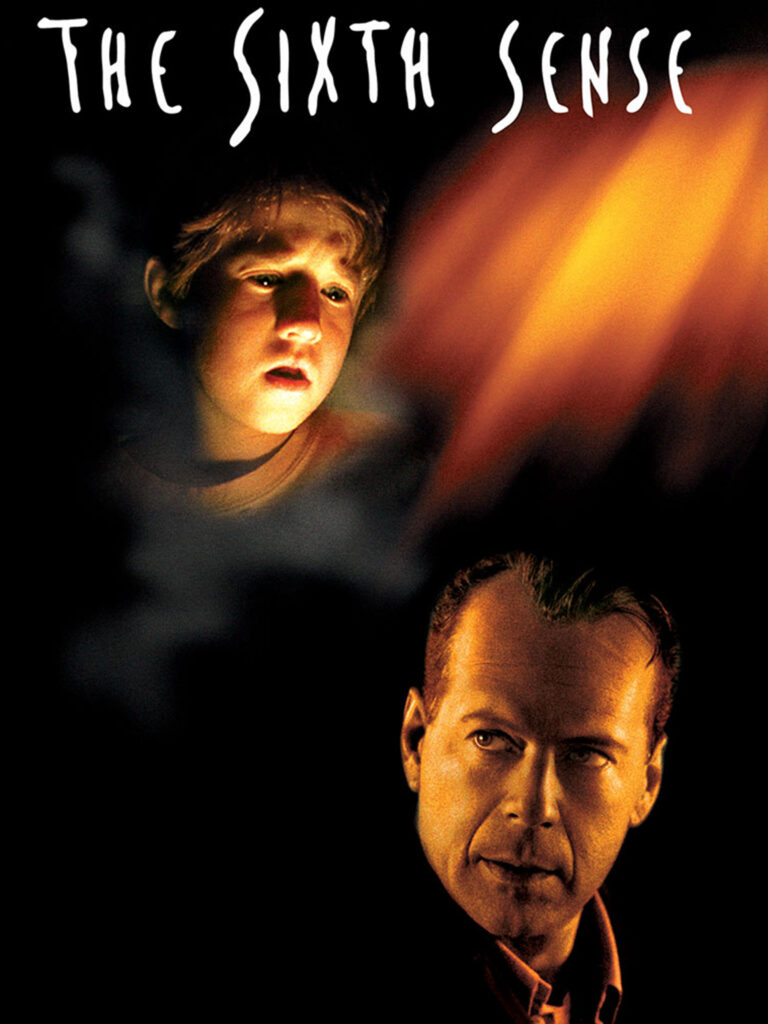The Sixth Sense is arguably one of director M. Night Shyamalan’s best works. With its unpredictable twists, theatrical and heavy-handed writing, and wise exploration of emotional fluidity in narrative and technique, it surprises as much as it saddens and surmises. The film follows Dr. Malcolm Crowe (Bruce Willis), an award-winning child psychologist, as he deals with the first significant consequences of his work. After a bloody altercation with a former deranged patient of Dr. Crowe’s, his previously perfect marriage and life falls apart. He takes on a remarkably similar case in an attempt to right his wrong and save his marriage: a nine-year-old boy, Cole Sear (Haley Joel Osment). An emotionally and academically bright kid who gets bullied and socially rejected, Dr. Crowe quickly realizes Cole has issues beyond logical diagnosis: he can see, hear, and speak to dead people. Together, the two learn to deal with their respective issues no matter how personally taxing (or paranormal) they may be, accepting death, loss, and longing on their journey. Sixth Sense is grand, intimate, touching, horrifying, gloomy, and relieving, without usually skipping a beat. It demonstrates why communication and openness are necessary to live peacefully, especially in one’s most heart-crunching moments.
Sixth Sense works because it shifts between emotional extremes unnoticeably without feeling hollow or self-indulgent. Unfolding like a sci-fi mystery, Shyamalan intertwines feeling with intrigue; every twist comes a film-long defining reaction, every choice a consequence, and every emotional beat a narrative turning point. Because of this fine alignment, the film feels subconsciously relatable, making everything more brutally sad. Osment, as the afflicted patient, is also perfectly cast. He makes Sear seem wise, a veteran of fear and pain that forced him to grow well beyond his years. He brings most of the film’s tragedy to the surface, forcing viewers mentally onto their knees from anxiety about his ultimate fate. Of course, typical Shyamalan issues arise here as well. The film jumps around towards the end, dashing to its final painful revelation without much organic build-up. Willis occasionally feels disengaged or uninterested. The main characters’ speech patterns contradict themselves sometimes too. But these moments are rare and hardly chip away at the complex emotional connection Shyamalan establishes with viewers. For the most part, The Sixth Sense is a grave tale about loving, losing, and healing that tosses out the five-step grieving stereotype in favor of boundaryless, overlapping emotional reactions.
The Sixth Sense
1999
dir. M. Night Shyamalan
107 min.
Screens on 35mm Monday, 10/23, 7:00pm @ Coolidge Corner Theatre
Part of the ongoing series: Big Screen Classics


